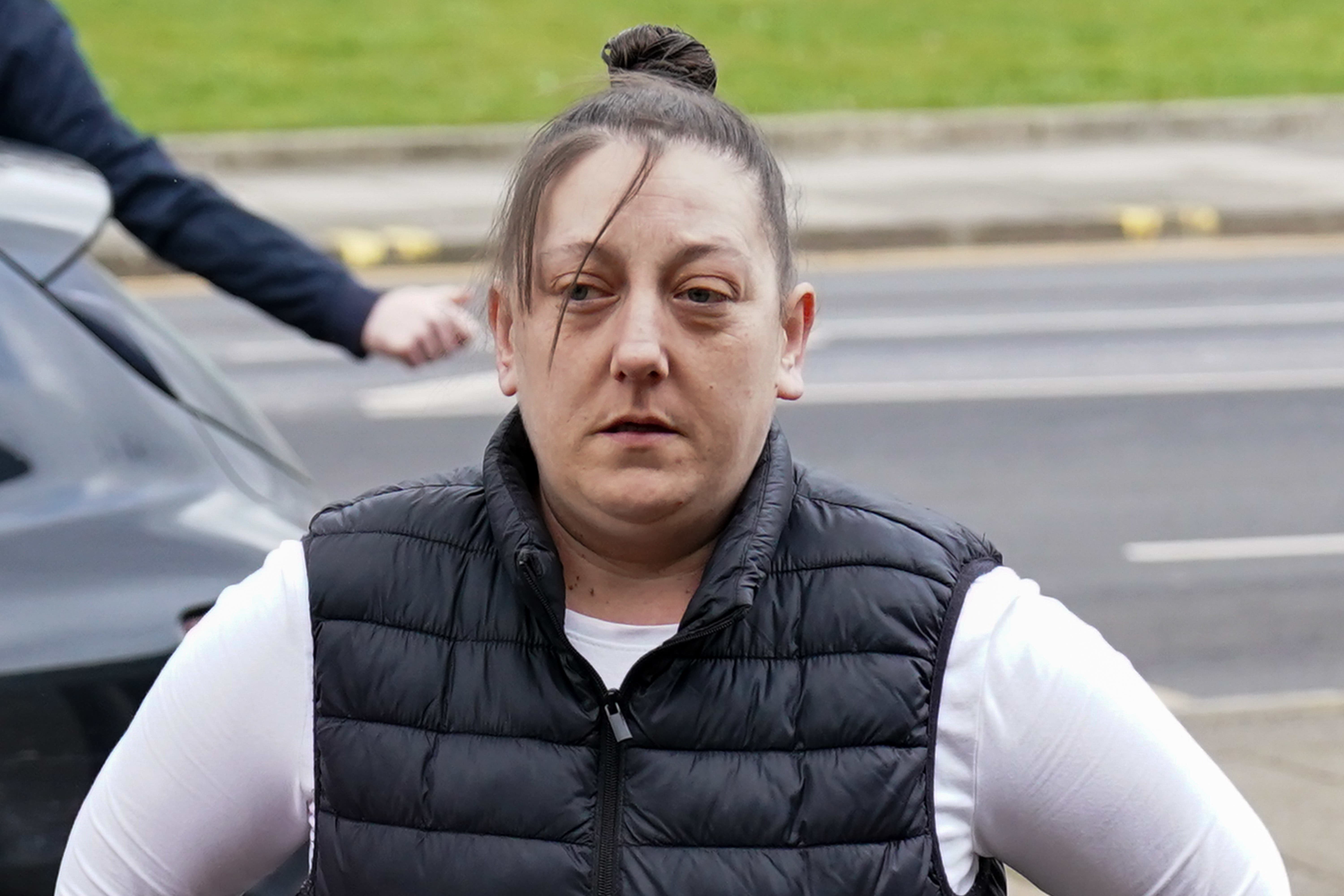Mother who caused death of daughter ‘overwhelmed’ during pandemic, court told
Kaylea Titford, who suffered from spina bifida, was found dead at her home in Newtown, Powys, in October 2020.

A mother who killed her 16-year-old disabled daughter through neglect and negligence became “gradually overwhelmed” and unable to cope during the Covid-19 pandemic, a court was told.
Kaylea Titford, who suffered from spina bifida, was found dead at her home in Newtown, Powys, in October 2020 after her parents allowed her to become morbidly obese.
Her mother, Sarah Lloyd-Jones, 39, admitted manslaughter by gross negligence last year, while her father, Alun Titford, 45, denied the charge and was found guilty after a trial last month.
The teenager weighed 22st 13lb with a BMI of 70 at the time of her death, and her body was discovered inside her bedroom in conditions described as “unfit for any animal”.
Swansea Crown Court heard Kaylea had been unable to move herself from her bed for many months before she died and had not used the shower or toilet since before the March lockdown that year.
Caroline Rees KC, prosecuting, told the sentencing hearing on Wednesday: “By the time of her death, Kaylea Titford was living in conditions unfit for any animal, let alone for a vulnerable 16-year-old girl who depended on others for her care.
“Kaylea lived and died in squalor and degradation.”
Ms Rees said evidence from the trial demonstrated the “extreme nature of the neglect” Kaylea suffered, describing the last months of the teenager’s life as “horrendous”.
“She was a severely disabled child, who needlessly had become bed-bound, trapped in appalling conditions surrounded by her own filth,” she told the court.
“It was a rancid combination of urine, faeces and secretions from her own body, including her ulcerated limbs.
“It was in that environment that she spent every minute, of every day, for months.”
Kaylea was left to lie in soiled clothing, on filthy bed linen and puppy training pads. She died after suffering inflammation and infection from ulcerations caused by obesity and immobility.
Emergency service workers who were called to the house described feeling sick due to a rotting smell in her room.
When her body was examined maggots were found which were thought to have been feeding on her body in the final days of her life.
In mitigation, Lewis Power KC, representing Lloyd-Jones, said his client had been evaluated as having low average intellect and a major depressive disorder.
“During the lockdown period, when so many people suffered not just mentally but in socialisation, she became gradually overwhelmed,” Mr Power told the court.
“Her coping strategies coupled with lockdown led her to develop major depression and she was no longer able to care for her daughter’s needs.
“It escalated to the horrendous situation where she withdrew from her everyday responsibilities and led the catastrophic outcome.
“She accepts she neglected her duties of looking after her daughter.”
Mr Power said Lloyd-Jones was a “kind, diligent and loving mother” for the majority of Kaylea’s life, adding that she is “contrite and remorseful”.
The court heard she sent messages to her husband begging him for help, telling him in one: “I’m absolutely exhausted, I can’t cope working and doing everything… all I’ve done is cry all day. I need you to help me.”
Text messages between Kaylea and her mother were also read to the hearing, including one in which the teenager said she had soiled herself.
After her mother replied in frustration, Kaylea sent back: “Why do you get mad? It’s not my fault.”
During his trial, Titford claimed that his wife was responsible for Kaylea’s care.
When asked why he had let his daughter down so badly, the removals worker replied: “I’m lazy”.
David Alias KC, representing Titford, said his client took a lesser role in Kaylea’s care as she reached puberty and was not trained in certain procedures unlike his wife.
“This is a family with a man working for a removal company 50 hours a week on average and a woman looking after all the children and working as a carer in the community in the lockdown,” he said.
“A care package was needed and it should not have needed to be asked for it. They should have been offered it and were not.”
Kaylea attended Newtown High School, where she was described by staff as “funny and chatty”, but she did not return after the coronavirus lockdown in March 2020.
Her parents are due to be sentenced at Swansea Crown Court on Wednesday afternoon before High Court Judge Mr Justice Griffiths.
His sentencing remarks will be broadcast to the public on television and online – the first hearing in Wales to be filmed since the law was changed to allow cameras into criminal courts for the first time last year.
The sentencing at the Old Bailey in London of Ben Oliver, who pleaded guilty to the manslaughter of his grandfather, David Oliver, was the first case in England or Wales to be televised in July last year.
The move, which came after a 20-year campaign by BBC News, ITN, Sky News and the PA news agency, was intended to help the public get a better understanding of how sentencing decisions are taken and improve transparency in the justice system.
Coverage is restricted to the part of the proceedings when a judge hands down sentences and gives his reasons, with no view of defendants, victims, jurors, lawyers or witnesses.
Footage will be broadcast with a short time delay to avoid transmitting any violent or abusive reaction in the courtroom.
